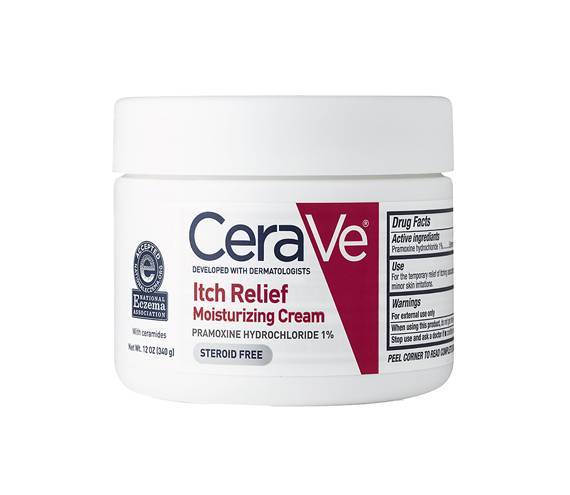Derm DMs: Is Treating Eczema on Your Face Different From Treating It on Your Body?
January 25, 2022I have my genetics and allergies to thank for my chronic eczema, and although I’ve been lucky enough to have it under control for years, it still surprises me in ways I least expect. Usually, my eczema patches appear on my arms and legs and mostly consume joint areas, which is common for the condition. It wasn’t until recently that I noticed a small patch developing on my cheek, which was a total first, even for me. I’m pretty sure I’m not the only one to experience eczema on my face, but I needed answers. I consulted with board-certified dermatologist Dr. Jason Miller, of Schweiger Dermatology in Freehold, New Jersey, to understand what could be causing this unusual fare-up.
What Are Some Reasons Eczema Can Occur on the Face?
According to Dr. Miller, eczema can occur on the face for a number of reasons: “As patients get older, facial eczema can result from allergic reactions to topical products such as metals, fragrances or even preservatives.” It’s also possible that inflamed oil glands can cause seborrheic dermatitis.
In my case, allergies seemed like the more likely culprit — possibly to metal, as I often wear wire-framed sunglasses right over the area I noticed the patch. Once I narrowed down what was causing my eczema patch (and got my glasses tightened), I wanted to know if there were any products I could use to address the appearance of the small patch on my face. “First, any factors that may be contributing to the eczema should be identified and eliminated,” says Dr. Miller. “New or irritating products should be stopped, including hair care.” As far as actually clearing up the irritation, Dr. Miller suggested that I head to a dermatologist for a mild, anti-inflammatory cream designed to relieve itch and redness. “Once improved, moisturizers have been shown to decrease the risk of flares,” he adds.
Why Eczema Should Be Treated Differently on the Face vs. the Body
While my little patch of eczema was improving thanks to prescription cream, I was still curious whether eczema on the face needs to be handled differently than on the body. Dr. Miller was also able to provide valuable insight on this question. “We often try to limit the use of topical steroid creams on the face, if possible, since they remain as the first line of therapy for body eczema,” he says. “Steroid treatment can be too harsh for the delicate facial skin, which is why non-steroidal alternatives are preferred.”
If You Have Eczema on Your Face, What Should Your Regimen Look Like?
Taming isolated incidents of eczema on your face starts with a less-is-more regimen. “It is beneficial to avoid any unnecessary products or ingredients,” says Dr. Miller, “and a lot of anti-aging products like retinol, can also be very drying, so they are best avoided until your eczema is clear.” A basic routine can start with a gentle wash like the CeraVe Hydrating Facial Cleanser, and if you feel a patch starting to develop, try the CeraVe Itch Relief Moisturizing Cream which is suitable for all skin types and can help provide comforting relief.
Now, I pay more attention to what I’m putting on or near my cheek in this area — keep my metal glasses at a distance and keep the treatment as gentle as possible. So far, it seems to be working!

Read More:
What is Ruddy Skin? Plus, How to Treat It
How to Incorporate Retinol Into Your Body Routine


